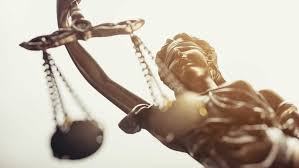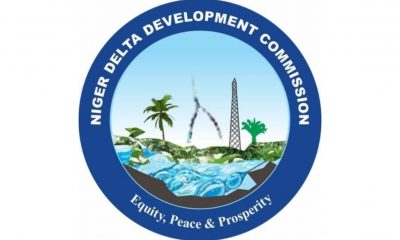Opinion
Activities Calling For Public Inquiries
One of the fruitful purposes of public inquiries into the activities of state institutions is the provision of opportunities for exposures of insider-malfeasance which are usually covered up for self-preservation purposes. Without such provisions and opportunity to expose weaknesses and malfeasance of public organisations, there is usually the tendency of some powerful individuals to create a culture that power and public offices are private inheritances. Nigeria has suffered long enough because of this culture of privatisation of power and public offices.
Among activities calling for public inquiries must be mentioned the shenanigans connected with oil block allocation in Nigeria. The military must bear a large portion of the malfeasance in the domain of oil and gas industry and activities related thereto. The practice of wielding big sticks and offering carrots as strategies for buying favour and intimidating those who stick out their heads, cannot continue, where transparency must feature. Similarly, the practice of sweeping strong allegations and snippets under the carpet must not continue.
Let it be revealed openly here that vested interests which were ready to make Nigeria ungovernable for Dr. Goodluck Jonathan, were members of the oil block cartel. Jonathan’s attitude towards oil politics was distasteful to the hawks and predators in the oil and gas sector. It was suspected that if given a second chance as President, he would step upon sensitive toes and damn the consequences. Surely, he had a glimpse of the malfeasance in that sector!
It is also an open secret that the ability to privatise power and wealth, especially in the politics of oil and gas, demands a strong backing of the intelligence and security services. Matters that arose from the Watergate scandals in the United States of America, revealed the truth that security and secret service agencies are close allies of power holders. Where they work hand-in-hand, fair can be foul and foul fair, but the cat can be let out from the bag where there are conflicting interests. Or moral values?
Definitely there are state secrets and interests that cannot be toyed with or sold into wrong hands. In a book titled: National Security and the American Society, Trager and Simonie defined national security as “the part of government policy having as its objective the creation of national and international conditions favourable to the protection and extension of vital national values, against existing or potential adversaries”. It is obvious that every country has some vital national values which must be preserved and protected, which duty falls on the nation’s security services.
For Nigeria, vital national values undoubtedly would include the integrity, honour, stability, pride and glory of the nation. But would the preservation and protection of such national values include covering acts that are treasonable in nature, just because such malfeasance emanated from a “sacred cow”? Does the protection of national values include sweeping under the carpet grave allegation such as was made by Dr Obadiah Mailafia regarding possible sponsorship of Boko Haram insurgency?
Was a responsible senior citizen and a former Chief of Army Staff, T.Y. Danjuma, wrong to have warned that “the ethnic cleansing must stop now, otherwise Somalia will be like child’s play”? He went on to say: “Nigerians are no longer feeling secure in their land” and also pointing fingers at the military as being complicit. Similarly, was Professor Omo Omoruyi wrong to have said that the Nigerian security apparatus is skewed in favour of the Muslim North? With several allegations against Fulani herdsmen over innumerable acts of hostility against communities and individuals, are the nation’s security organs seen to be alive to their responsibilities?
Nigerian National Petroleum Corporation (NNPC) and its subsidiaries are sectors of public services whose activities call for critical inquiries. With reference to the issues of fuel subsidy and unsatisfactory state of the nation’s refineries, there is an obvious need that the jinx which keeps holding the nation to ransom should be looked into. The fear expressed by concerned Nigerians is that the cartel and cabal holding the oil and gas sector hostage are not only too strong but also can be dangerous. Therefore if even there is a public inquiry, there surely would be an eventual subversion.
Even with an expectation of a passage of the Petroleum Industry Bill, there are still many issues that beg for public inquiries. Wherever there are activities which cannot stand the test of transparency, there are usually treats towards any move to institute an independent public inquiry into such activities. Even making such suggestion as this can be dangerous.
Among organisations outside the public sector whose activities call for public inquiry are various religious sects, not only of the Christian denominations. Not only that religion has become a commercial venture, more under the cover of religion, there are shocking activities that would not be proper to mention here. Because of the awe and reverence which religion evokes, many atrocities have been committed under the name of God. It would be shocking to hear what testimonies many victims of religious fraudsters would give, if there be a public inquiry into the activities of various religious sects.
Ranging from organised fraud, to acts of vicious terrorism, religious sects feature as smooth operators. From tax evasion to money laundering, religious sects are involved. So it becomes necessary to focus some searchlight on their activities. But, the fear, again, lies in the possibility of subversion, diversion of attention and possible attack on those who initiate or get involved in such inquiries. To start with, there must be a check on proliferation of religious sects and movements.
Finally, the history of abandoned public projects and looting of public assets under various guises, have been such that some public inquiry becomes needful. Unless we want to sweep everything under the carpet, because of the enormity of inquiring into innumerable malfeasance, to allow situations to continue as they are would not do the nation any good. Let’s have the audacity and courage to examine ourselves in public.
Dr. Amirize is a retired lecturer from the Rivers State University, Port Harcourt.
Opinion
Humanity and Sun Worship

Opinion
When Global Peace Hangs In The East

Opinion
Balancing Religious Freedom and Community Rights

Quote:”Communities have rights to peace, safety, and quality of life. Noise pollution, crowds, or other impacts from religious activities can affect these rights. Balancing these interests requires consideration and dialogue”.





